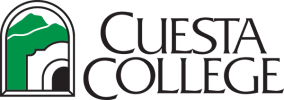
Program Summary
ELECTRONICS AND STATE ELECTRICIAN - Certificate of Achievement
This certification program presents a broad range of topics that will enable students to gain the skills and knowledge necessary to install, maintain and troubleshoot a variety of electrical and electronic control systems. These include residential wiring, commercial/industrial wiring and cabling, national electric code, troubleshooting and maintenance, motor controls and programmable logic controllers. The National Science Foundation (NSF) and local industry awarded significant grants and resources to construct three (3) separate Cuesta laboratories: a state-of-the-art polyphase power and control laboratory, a computer and network cabling laboratory, and a large all purpose wiring laboratory. The program provides students with theory and "hands-on" practical experience related to all aspects of electrical, transformer, and controls technology. Prior knowledge of electronics and the electrical trade is not required: however, successful students will master the skills required for success in the electrical trades and related electrical and electronic industries listed under "career opportunities".
CALIFORNIA STATE APPROVED ELECTRICIAN PROGRAM:
California law requires that any individual working for an Electrical (C-10) Contractor be certified as an "Electrician Trainee", "Residential Electrician" or "General Electrician" by the California Division of Labor Standards Enforcement ( per. 108-108.5 CLC). The Electrician Trainee Program in Cuesta's Electronic and Electrical Technology (EET) Department is the only fully certified non-union program within over a 100 mile radius of our main campus. Upon enrollment in one or more of the program courses, students will be able to immediately apply for their Electrician Trainee Certification number/card and legally work for contractors. After completion of the certificate, students will be eligible to take the California "General Electrician" and /or "Residential Electrician" Exam(s).